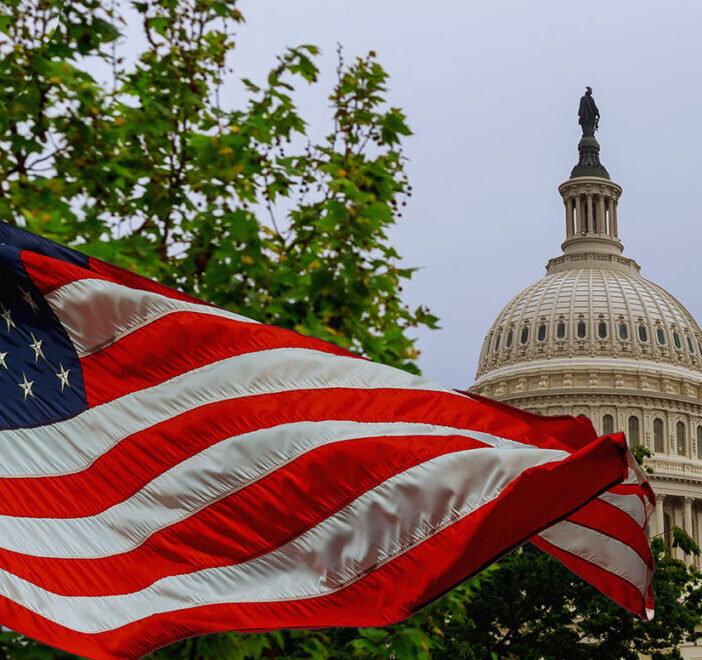June 03, 2022
2021 Aging Related State Legislation
COVID- 19
Funding
-
- Texas requires a health care institution that received funds under the Coronavirus Aid Relief, and Economic Security Act to report the money received to the Health and Human Services Commission (HHSC) on a monthly basis. A health care institution is not required to report Paycheck Protection Program money received as a loan during the coronavirus disease public health emergency from the U.S. Small Business. The bill exempts an institution from the reporting requirement if the institution returned or repaid the money to the federal government.
PPE
-
- New Jersey, requires nursing homes to maintain a supply of personal protection equipment that is sufficient to sustain the health care needs of 20 percent of the total number of residents within the nursing home for a reasonable period.
- Texas requires the Texas Division of Emergency Management (TDEM) by rule to establish guidelines for the procurement, storage, and distribution of personal protective equipment (PPE).
Testing
-
- Illinois passed legislation that required insurance companies to cover COVID-19 testing for nursing home employees.
- New Hampshire authorizes pharmacy technicians to administer COVID- 19 testing and vaccination.
Vaccination
-
- Montana prohibits employers from requiring employees to disclose their immunization status and bars, employers, from requiring employees to receive certain types of vaccines or to possess an immunity passport.
- Texas allows home care and hospice nurses to administer the COVID-19 vaccine under the required prescriptive authority of a physician to willing, vulnerable, and elderly Texans safely in their homes.
Technology / Telehealth
- Arizona, Georgia, Oklahoma, Rhode Island and Vermont require health insurers to cover telehealth services at the same level of payment for equivalent services whether provided through telehealth using an audio-visual format or in-person care.
- Colorado and Kentucky require the local health departments to promulgate rules relating to telehealth.
- Connecticut, Maryland, and Texas require Medicaid reimbursement for telehealth services to the same extent as services provided in person. Connecticut also allows nursing home residents to use the technology of their choice regarding both virtual monitoring and virtual visitation.
- Illinois and Montana require accident and health insurance to cover telehealth services when clinically appropriate.
- Illinois requires each long-term care facility in the State, as a condition of facility licensure, to adopt and implement written policies providing for the availability of technology to facility residents and ensure that appropriate staff and other capabilities are in place to prevent the social isolation of facility residents.
- South Dakota recognized telehealth as a way to deliver health services when clinically appropriate.
- Texas amended its current telehealth statute to include teledentistry, dentists, and dental hygienists.
Home and Community-Based Services
-
- Florida established a statutory process for the review, approval, and oversight of future and current PACE organizations.
- Virginia Directs the Board of Health to include in regulations a provision for supervision of home care attendants providing personal care services by a licensed nurse through the use of interactive audio or video technology.
Housing
-
- Maryland requires the Department f Housing and Community Development to report to the Governor every five years on efforts by the State, political subdivisions, and housing authorities to promote fair housing choice and racial and economic housing integration.
- Montana provides a tax exemption for nonprofit rental housing providers providing affordable housing to lower-income tenants.
- Washington provides certain tenant protections during and after public health emergencies, providing for legal representation in eviction cases, establishing an eviction resolution pilot program for nonpayment of rent cases, and authorizing landlord access to state rental assistance programs.
- Wyoming used CARES act funds for broadband development projects to respond to the COVID-19 public health emergency by bringing faster and more reliable broadband internet service in unserved and underserved areas.
Liability Protection
-
- Arizona, Florida, Indiana, Montana, Nebraska, South Carolina, South Dakota, and Texas provide liability protection for, healthcare providers, and healthcare facilities during the declared COVID-19 public health emergency.
- Louisiana provides liability protection for businesses and professionals who refuse to mandate COVID vaccination or immunization for employees or customers.
- California clarifies that a licensee is liable for up to $500 per violation when a current or former resident, of an LTC facility, brings a civil action against the facility for violation of any rights of the resident or patient as set forth in the Patient’s Bill of Rights or any other right provided for by federal or state law or regulation.
Medicaid
-
- Colorado received a 2.5% rate increase for Home and Community Services and a 2% increase for Nursing homes.
- Connecticut received a 4.5% rate increase for nursing homes in both years of the biennial budget. The funding provided through the rate increases in each fiscal year is to be used for wage enhancements for facility employees and wage increases must be implemented prior to July 31, 2021, and July 31, 2022, to qualify for the rate increase.
- Kansas received a 2% increase for nursing homes and an extra $15/day lump sum payment based on the average Medicaid census in 2020.
- New Jersey, assisted living facilities are slated to see an increase in funding of $10 per day for every Medicaid beneficiary they care for. Medicaid per diem rates for a spectrum of assisted living services to $87 for facilities, $77 for comprehensive personal care homes, and $67 for assisted living programs that deliver similar services to those living at home. Separately, the NJ Legislature increased the hourly reimbursement rate for personal care services, which provide care to those in the home, from $20 to $22. The Governor’s budget included $67.2 million in state funds to fuel a 10 percent rate increase for those skilled nursing facilities, with the caveat that providers spend at least 60 percent of the increase on direct care wages.
- Oklahoma nursing homes will see a 5% rate increase that was a result of the increase in the provider fee due to the revenue from relief funds and the enhanced FMAP.
- Oregon’s legislature made significant investments in the LTC field Including:
- 5% COLA to Medicaid rates for community-based care providers including assisted living, residential care, and in-home care agencies for both years of the 2021-2023 biennium.
- Rebased nursing facility rates at the 62nd percentile, extended the 5% COVID Enhanced Medicaid Rate through 3/31/22.
- Enhanced Medicaid Rates for Wages in assisted living, residential care, memory care, and nursing facilities and in-home care services. It will be 10% for assisted living/residential care/memory care that pays a starting wage of $15 to direct caregivers effective 10/1/21 and 4% for nursing facilities that pay CNAs $17 effective 10/1/21.
- Wisconsin requires the Department of Health Services to provide reimbursement or supplemental payment to hospitals under the Medical Assistance program for providing nursing-facility-level custodial care. To receive reimbursement or a supplemental payment, the hospital must notify DHS that it is participating as a swing bed hospital under the Medical Assistance program and providing custodial care.
Nursing homes
Abuse
-
Texas passed a bill that prevents financial abuse of nursing home residents by allowing facilities to pursue debts against responsible payors who have improperly diverted a resident’s funds and left them unable to pay for their long-term care and susceptible to discharge and lawsuits.
Emergency
-
- New Jersey requires the Board of Public Utilities (BPU) to adopt rules and regulations requiring an electric public utility to provide priority power restoration following an extended power outage to: hospitals; nursing homes; and assisted living facilities.
Inspection
-
- Texas passed legislation that ensures the Health and Human Services Commission (HHSC) inspects nursing facilities and assisted living at least annually and provides for the continuous monitoring of HHSC staffing levels and regulatory capacity. This bill amends the current law relating to the regulation and inspection procedures of certain long-term care facilities, including a survey of certain facilities’ emergency power sources.
Staffing Requirement
- Arkansas expanded the definition of DC staff to include any licensed or certified healthcare professionals providing direct care through interpersonal resident contact or care management, including but not limited to nurse aides, licensed nurses, medication assistants, physicians, physician assistants, physical or occupational therapists or therapy assistants, respiratory therapists, speech-language pathologists, and infection preventionists.
- Connecticut requires a full-time Infection Preventionist for each nursing home and each assisted living dementia special care unit. Nursing home minimum staffing level is 3.0 hours per resident day and the social worker ratio is one to sixty residents for nursing homes.
- New Jersey established minimum ratios for the number of CNAs to the number of residents in nursing homes, CNA-to-resident ratios will be as follows: (1) one CNA for every eight residents on the day shift; (2) one CNA for every 10 residents on the evening shift; and (3) one CNA for every 16 residents on the night shift.
- Rhode Island requires each nursing home facility in the state to have a licensed nurse on the premises 24 hours a day and have sufficient licensed and non-licensed staff to meet the needs of residents.
Visitation
-
- Alabama: Requires health care facilities, including nursing homes, to allow at least one caregiver or visitor to visit each patient or resident during a public health emergency.
- Connecticut, Indiana, North Dakota, Oklahoma, and Texas allow long-term care facility residents to designate essential support persons who may visit and support their physical, emotional, psychological, and socialization needs.
- New Jersey requires each long-term care facility to adopt and institute a written isolation prevention plan and have appropriate technology, staff, and other capabilities in place to prevent the facility’s residents from becoming isolated during public emergencies.
- Texas new legislation prohibits an applicable health care facility from prohibiting a resident or patient of the facility from receiving in-person visitation with a religious counselor on the patient’s or resident’s request during a public health emergency except as required by federal law or a federal agency.
- South Dakota grants residents of an assisted living facility the right to receive visitors of the resident’s own choosing, at the time of the resident’s own choosing, provided the visitation does not impose upon the rights of another resident.
- Virginia allows visitation from clergy to all long-term care providers.
Workforce
Background checks
- Maine requires providers who serve the high-risk population under the Medicaid program to go through thorough background checks.
- Texas passed legislation that requires a written statement to be included in employment applications on which applicants must indicate whether they have been convicted of an offense that, under state law, bars the applicant from employment. The bill prohibits a state-licensed assisted living facility from employing at the facility an applicant who fails to indicate in the statement included with their submitted application that the applicant has not been convicted of such an offense.
Staffing
-
- The Arizona Department of health is required to implement the “licensed health aide” program to service Arizona’s Long-Term Care System (ALTCS). ALTCS is the long-term care component of Arizona’s Medicaid program.
- Arizona and Louisiana authorize certain non-physician practitioners (defined as certified nurse practitioners, certified clinical nurse specialists,s or certified physician assistants) to order home health services.
- California prohibits a skilled nursing facility (SNF) from contracting with a person as a medical director if the person is not, or will not be within five years, certified by the American Board of Post-Acute and Long-Term Care Medicine (ABPLM) as a Certified Medical Director.
- Kentucky allows temporary long-term care staff used during the COVID 19 pandemic to transition to a state registered nurse aides and continue their career in long-term care.
- The Texas legislature allocated funding for a Nursing home Workforce report. It instructs the Health and Human Services Commission (HHSC), in coordination with the Long Term Care Facilities Council to report on the workforce shortage in nursing homes and the delivery of care in Texas nursing facilities. The report is due to the governor by November 1, 2022.
Training
-
- Maryland requires residential service agencies to provide dementia-related training to new employees within 45 days of the start of their employment.
Wages
- Connecticut– created Connecticut Essential Workers Covid-19 Assistance Fund. This fund will enable essential workers, including health care employees, to be compensated for lost wages and healthcare costs if they had contracted Covid-19. Funded through ARPA funds, this pool of funding will allow the state to compensate essential workers without overburdening the providers’ workers’ compensation coverage. Connecticut also expanded eligibility for worker’s compensation benefits for post-traumatic stress injuries (PTSI) to cover all health care providers.
- Massachusetts requires nursing homes to reinvest at least 75% of revenue in direct care staffing costs or face a reduction in Medicaid reimbursement rate.
- Michigan enacted a temporary one-year increase of $2.35 per hour for direct care staff, including nurses and aides. Without the increase, starting wages for aides averaged $11.00 to $12.00 per hour.
- North Carolina’s legislature appropriated $1 million for one-time bonus payments to direct care staff,
- Oregon established the Essential Workforce Health Care Program, to provide supplemental payments as approved by Centers for Medicare and Medicaid Services, to long-term care facilities, residential facilities, and in-home care agencies that elect to participate and meet specified requirements, to be used to provide health care benefits to employees of facilities.

Most Recommended
October 15, 2025
 Shutdown Week Three: Impact of Ongoing Closure on Affordable Housing
Shutdown Week Three: Impact of Ongoing Closure on Affordable Housing
December 10, 2025
Fiscal Year (FY) Funding 2026
October 07, 2025
Immigrant Workforce Matching Program Brings Workforce Relief
Recently Added
January 12, 2026
 LeadingAge Joins CMS' Oz in Hospice, Home Health Fraud Roundtables
LeadingAge Joins CMS' Oz in Hospice, Home Health Fraud Roundtables
January 12, 2026
HUD Expands Supportive Services Funds to Cover Internet Service
January 08, 2026



